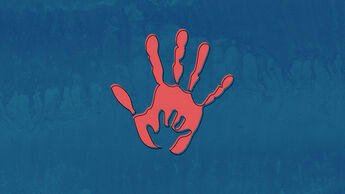
‘Abortion is the intentional killing of a human being.’
Believe it or not, this is a statement that both pro-choice and pro-life advocates agree to.
There are, of course, those who dispute this, arguing that the embryo or foetus is not a human being and is nothing more than a tumour or clump of cells. However, we know from the science of embryology that this is empathically not the case. Such a view is barely credible given the unanimity in the scientific community that an embryo or foetus is a human organism.
Others are more intellectually honest: they acknowledge that, yes, a foetus is a human being. But intentionally killing that human being is morally acceptable, because a preborn human being is not a person—they do not possess personhood. This is where science meets philosophy and ethics.
The personhood question is actually the real debate everyone should be having when it comes to abortion; your stance on the personhood of a preborn baby is the determining factor in how you view whether abortion is a moral choice or not.
What is personhood?
Personhood is undoubtedly a complex philosophical subject. The Oxford Dictionary defines personhood as ‘the quality or condition of being an individual person’, but that doesn’t tell us much.
Those who argue for abortion rights have debated what being a person means over the years, arguing over characteristics such as self-awareness, rationality, or the capacity to communicate. They argue that, since a preborn baby does not possess these, she is not a person with human rights and can be legally killed.
These kinds of philosophical arguments don't just sit collecting dust in academic libraries. They have particular influence in case law. For example, Lady Hale, Former President of the UK Supreme Court, quoted from a well-known philosopher in her judgement on Northern Ireland’s abortion law—a philosopher who essentially argues that a woman would be acting as a ‘good Samaritan’ by letting a preborn baby use her body to survive, and is therefore under no obligation to do so.
The debate we should all be having
Unfortunately, the abortion debate in the public square has moved on from these kinds of discussions; there is only so long that those who hold to the pro-choice position can deny the science. In place of this is an overriding rhetoric of choice and bodily autonomy.
But the personhood question is actually the real debate everyone should be having when it comes to abortion; your stance on the personhood of a preborn baby is the determining factor in how you view whether abortion is a moral choice or not.
It’s important that people are reminded this is really what this debate is about, because we could see the personhood of preborn babies erased even further if abortion law changes in Britain and no one will notice.
What is the current legal status of a preborn baby?
There is no simple answer to this.
The law has never attempted to define in exact terms what a preborn human being is, however, lawmakers have gone as far as to argue that she doesn’t have a ‘legal personality’ and that human rights law does not apply to her.
However, she does have some status legally: she is recognised as a separate, biological human being and a unique organism. She is not an appendage of the woman, like her kidney or her arm. She is not ‘nothing’.
The fact that a foetus is not a ‘nothing’ is demonstrated by the degree of protection she is offered from termination. The current law on abortion—the law that pro-abortion advocates want to repeal—provides this degree of protection. This law doesn’t just protect a preborn baby from indignity or maltreatment, but from destruction. This means that she has a certain amount of value and recognition under the law. She is not merely property that can be dispensed with.
This law doesn’t just protect a preborn baby from indignity or maltreatment, but from destruction. This means that she has a certain amount of value and recognition under the law. She is not merely property that can be dispensed with.
This in turn means that there will necessarily be limitations placed on women about what they can do to her, and many people don’t seem to understand this conundrum. They want a woman to have full autonomy of her body, but they also want greater restrictions on abortion limits and recognise a foetus should be protected in certain circumstances. The moral ambivalence many people feel on this issue leads to the overwhelming conclusion that they must therefore recognise the personhood of a preborn baby.
Sort of a person?
If we don’t want to remove all recognition of a preborn baby’s humanity, then we need to fight back against decriminalisation. Because the decriminalisation of abortion, if successful, would make a definitive statement about a preborn baby.
Under decriminalisation, any protection and recognition a baby previously enjoyed is gone. The more justification provided for its destruction, the more it is devalued in status and the less it is protected. A preborn baby no longer exists, it is virtually just a piece of property.
And this is exactly why we have to find out what we really think a preborn baby is, and look behind the rhetoric of ‘my body, my choice’. As uncomfortable as it may be, if we are wrong about the personhood of preborn babies, we have to accept the limitations that we will have to place on our autonomy as a result. But we will also have to come to terms with what we’ve done and seek forgiveness, before it is too late.
As a first step, any attempt to erode the last piece of protection for preborn babies should be firmly resisted.


Share story
Why decriminalising abortion will erase the humanity of preborn babies for good